
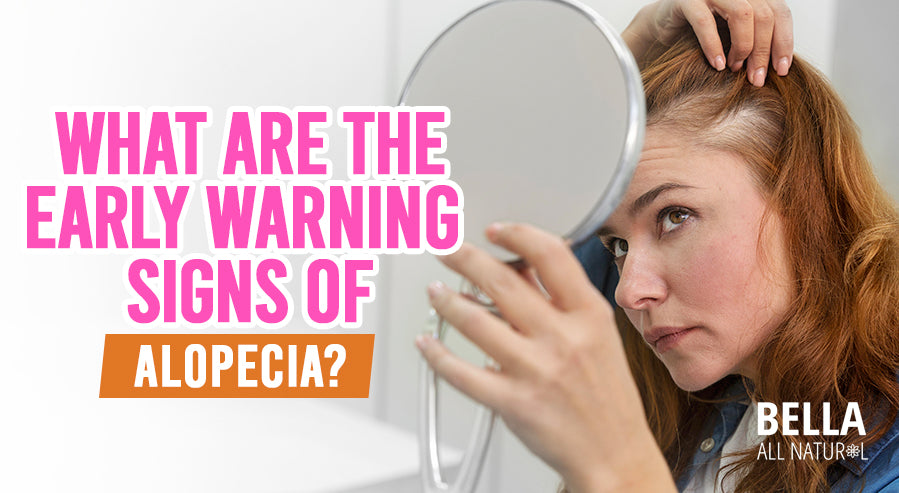
Taking pride in our appearance is completely normal, especially considering the value our society places on beauty standards. While there has been some progress in eliminating unrealistic expectations, there are aspects of our appearance that we want to preserve as long as possible. Some people want to preserve their complexions and stave off early signs of aging in their skin, whereas others want to enhance their natural features for aesthetic purposes.
While everyone has certain priorities concerning their appearance, there are certain overlaps between the things that matter to certain people. One of the biggest concerns across all demographics is maintaining our hair, especially when baldness is a common issue for men and women worldwide. While some people are prone to balding due to age, certain conditions cause us to go bald faster.
One of the most pressing issues insofar as hair is concerned is the onset of alopecia, which is well-known for its connection to baldness. Unfortunately, there is a lot of confusion surrounding what alopecia is compared to typical baldness, making the former hard to identify. When our hair starts thinning and falling out, some of us become desperate to stop it before we lose our hair completely.
Unfortunately, not knowing what alopecia is affects the viability of certain treatment avenues. Identifying alopecia, especially in the early stages, is crucial to finding a hair care treatment that will stem the tide of hair loss. The question is: What are the early signs of alopecia?
What is Alopecia?
The first and arguably most important part of identifying alopecia is understanding what it is and how it differs from normal balding. The simple answer is that there is no difference, as alopecia is simply the technical term for balding. It is called alopecia, whenever hair falls out of your scalp and leaves patches of bare skin. Most people believe that alopecia is a condition that causes baldness because the term is rarely used in everyday settings.
Unfortunately, as soon as the word "alopecia" is used, your hair is falling out, possibly because of several things. The reality is that any one thing does not necessarily cause alopecia and can be caused by something you can fix with lifestyle changes or is completely out of your control. The problem is that identifying the cause is incredibly difficult, depending on how you live your life and your parentage.

Regardless of the cause, alopecia is a common issue that predominantly affects biological men. According to statistics from the National Alopecia Areata Foundation (NAAF), approximately 160,000,000 people worldwide have alopecia. Considering there are over 8,000,000,000 people on the planet, there is a 2% chance of developing alopecia as an adult (some children develop it, but the exact percentage varies).
While this is not a huge percentage, it represents a worldwide problem that impacts people's self-perception, appearance, and confidence. Unfortunately, knowing what alopecia is and what caused it are 2 different things that are equally important things. Recognizing the warning signs can help make identifying the cause easier and vice versa.
What Causes Alopecia?
Typically, we shed between 50 to 100 hairs daily, which we normally overlook since new strands grow to replace them. The new strands emerge almost instantly, meaning we never get an opportunity to notice the strands that fell out beyond them being on our hands or falling to the ground. Alopecia happens when the new strands never grow, and we are left with a patch of skin where hair once grew.
This phenomenon usually manifests when we age due to deteriorating bodily functions that once controlled hair growth and rejuvenation.
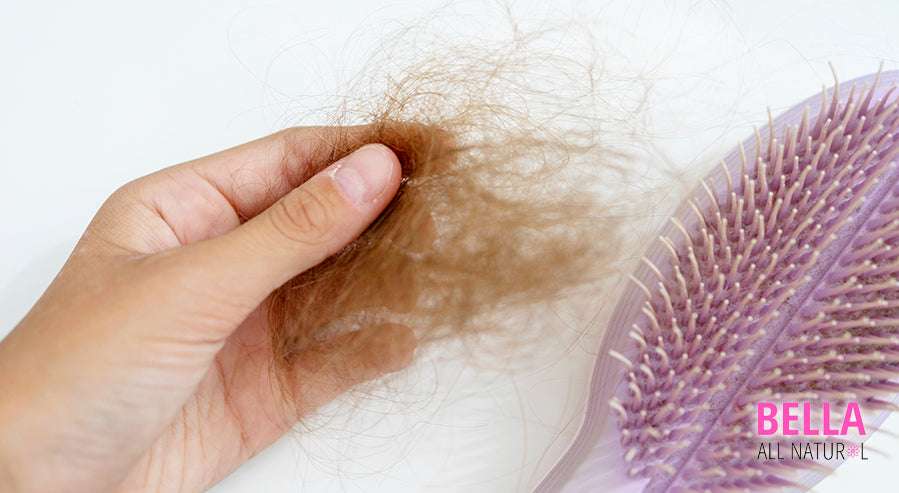
Unfortunately, alopecia is becoming more common in young adults for various reasons, the most common of which include:
- Family History: The most common cause of alopecia is having a relative who had it. Recent studies have determined that the closest genetic link to alopecia is inherited from maternal grandfathers. Essentially, if your mother's father is bald, you will likely inherit that trait. Unfortunately, this is one of the few causes of alopecia that cannot be overcome since genetics override cosmetic tools.
- Hormones: Contrary to popular belief, hormones play a significant role in keeping your hair healthy and growing. Without the proper balance of hormones, alopecia starts manifesting, and hair loss becomes more severe. Several medical conditions disrupt hormones and cause alopecia as a symptom. Fortunately, this can usually be corrected or overcome once the bulk of the illness is treated.
- Stress: Extreme stress can disrupt natural body function since stress inhibits hormone production, among other things. As a result, overly stressed individuals experience a temporary form of alopecia that goes away once stress levels are regulated.
- Radiation Therapy: Anyone who has been through cancer treatments (or has a loved one who has) knows that radiation therapy causes hair loss. Alopecia associated with radiation treatment is caused by the damaged pores from which hair follicles grow. While the hair might grow back, it might not be as full or healthy as before the treatments began.
There are other causes of alopecia, but these are the most likely to affect you or someone you know. Unfortunately, the most common of them cannot be treated since no cosmetics can overwrite genetics. Nevertheless, you still need to recognize the warning signs that you might have alopecia. Otherwise, you might not be able to correct it before it becomes too much to handle.
What Are the Warning Signs of Alopecia?
The good news is that alopecia does not suddenly cause you to lose all your hair and leave you completely bald. It is a process that takes time and has telltale signs that you can interpret to identify the issue before it causes total baldness. The challenge lies in reading the signs to begin treatments before hitting the point of no return. Some signs are more obvious than others, but you must be able to identify them all to have the best chance of reversing the damage.
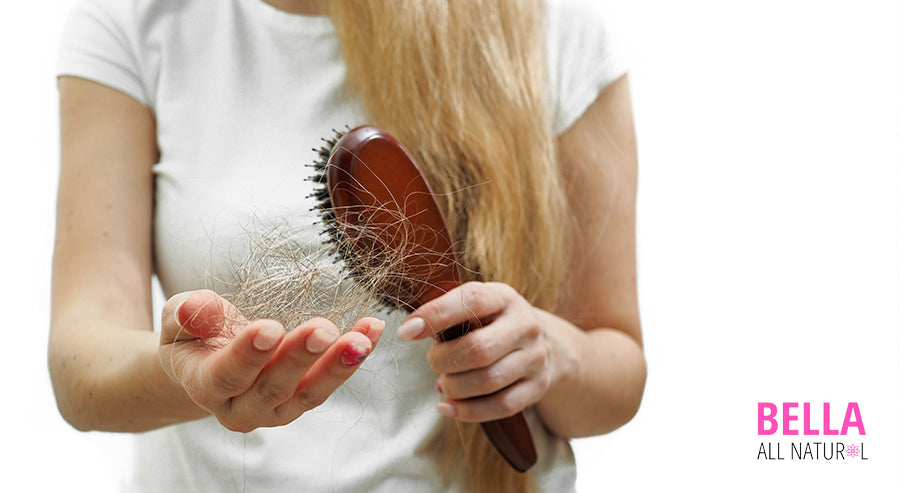
The warning signs of alopecia include:
- Hair Thinning: Our hair consists of clusters of follicles that create the volume we expect from a full head of hair. This volume presents a thickness that prevents our scalp from peeking through our hair for others to see. Unfortunately, alopecia causes the number of follicles to shrink, causing our hair to lose volume and making it easier to see through. This also causes our hairline to recede since the hairs that once covered those parts of our scalps are no longer growing out.
- Loose Hair: As part of the thinning process, you might notice that strands of your hair are looser and fall out more easily. You should expect to see a few strands of hair come out whenever you comb or brush your hair. When alopecia is present, the number of hairs you can remove this way increases since they are looser and not as well rooted in the scalp.
- Patches: When alopecia sets in, you will likely start seeing the early effects of balding and notice patches of skin where hair used to be. These patches are usually circular or oval-shaped and might be itchy or irritated. This symptom usually affects the hair on our scalps, but it can also affect our eyebrows and facial hair. This is one of the earliest signs we detect because it affects so much of the hair on our bodies, but it is also easily missed if you do not pay much attention to your hair.
Once you start noticing the signs of alopecia, you might believe it is too late and you cannot correct the condition. In some cases, alopecia cannot be reversed completely, but it is possible to treat the symptoms so you can recover some of your lost hair. The results might vary depending on the underlying factor that caused your hair loss, but some options are effective for all causes. You should take advantage of your body's natural ability to grow hair by giving it raw resources.
What is Collagen?
We have discussed collagen more than once but mostly focus on what it can do for the skin. Collagen is a protein we naturally produce from the earliest days in the womb (though we rely on our mothers for the initial production). Collagen is one of the most important proteins in our bodies because it contains compounds that we need to produce essential body parts. The main part of our anatomy that collagen manufactures is our skin, which also plays a significant role in hair growth.
Specifically, collagen contains several amino acids as part of its chemical makeup. When we produce collagen, the body repurposes those amino acids to make keratin, another protein. Keratin is the primary building block for hair and is essential to creating more. Without keratin, we would never have grown hair and completely rely on outside tools to keep warm and protect against debris.
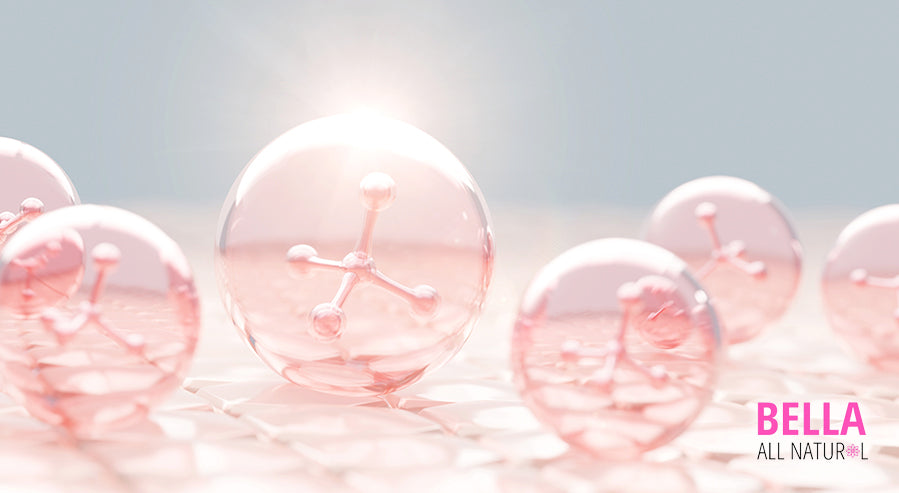
Collagen's role in producing our hair has made it a popular hair supplement since it has the raw materials needed to make new strands. Fortunately, there is evidence of a connection between collagen and improved hair growth for people with alopecia. Unfortunately, this benefit is not as effective for genetic alopecia as it is for other types. Nevertheless, it might be possible to use collagen to counteract the hair loss you have experienced so far.
Collagen Helps Build Hair Strands
As mentioned, the amino acids in collagen peptides are essential to our body's ability to produce keratin, which is used to build hair strands. Not every necessary amino acid is present in collagen, but enough of them are that we can rely on other sources for the remaining acids. Collagen is best known for providing the most essential amino acid for keratin production: proline.
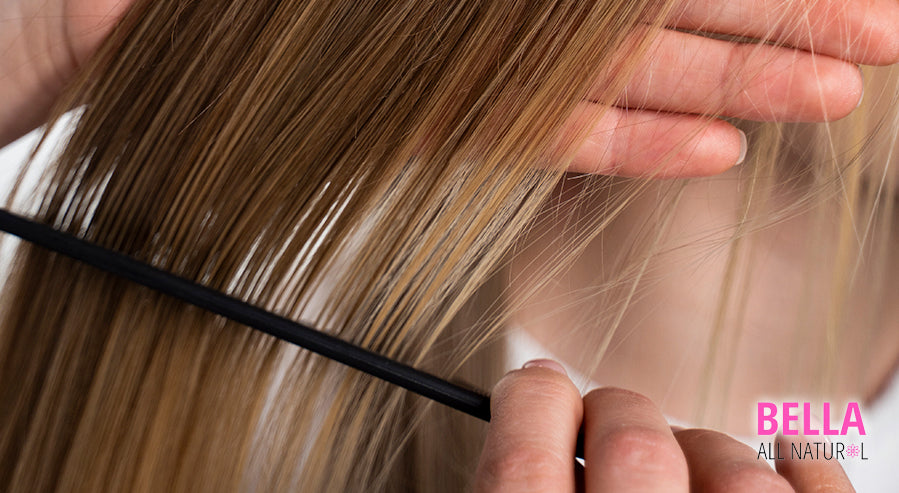
Proline is the main building block our bodies use to produce keratin; without it, we would be incapable of producing keratin. Fortunately, most collagen peptides are rich in proline and can be used to give our bodies raw materials they can use to grow more hair. Some studies have reported limited proof that collagen supplementation can elevate keratin content enough to undo some of the damage caused by alopecia. However, additional human studies are needed to confirm the effect.
Collagen Reduces Hair Thinning
Hair thinning is one of the first signs of alopecia and is the most frustrating since you are watching your hair fade away. Fortunately, the part of alopecia that causes this phenomenon is primarily rooted in the skin under our hair. Our skin holds the roots of our hair and must be maintained to avoid loosening them. Our skin is 70% collagen, so more collagen provides healthier, more resilient skin if you do not consume too much.
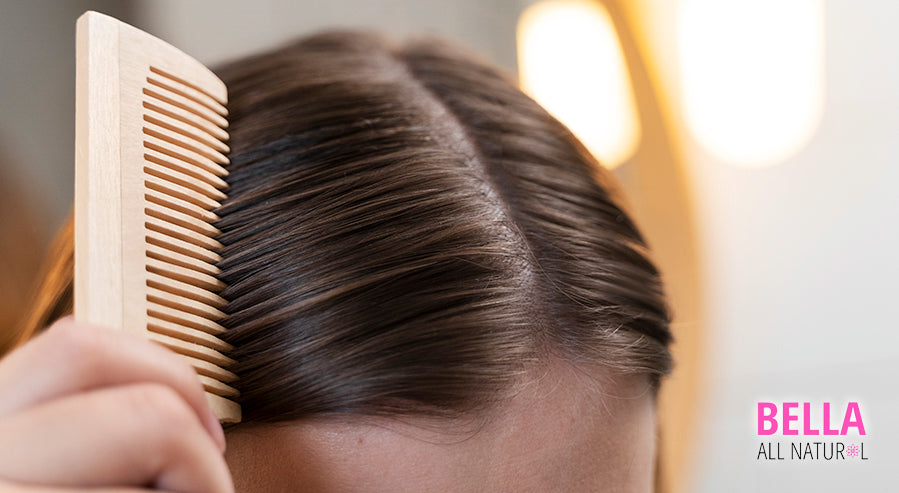
This effect can be used to reinforce the skin holding hair roots in place and, unlike the previous point, has more human studies confirming the effects. The most notable of these studies was a 12-week program with over 1,000 adult subjects. As per the scientific method, the subjects were divided into test and control groups, with the former receiving a daily collagen supplement.
When the study was over, the subjects in the test group had improved skin elasticity, which allowed the roots of their hair to remain in place without getting damaged by stiff skin. This indirectly affects hair thinning since it reduces the amount of hair we lose daily.
Keep it All Natural!
Alopecia is one of the most frustrating and unpleasant consequences of aging since many take immense pride in their hair. Protecting our hair follicles and reducing hair loss can be extremely difficult since alopecia has multiple causes. Fortunately, collagen might be an effective tool for reinforcing our hair and improving the skin from which it grows. The bigger challenge is finding a reliable source of collagen supplements.

We at Bella All Natural respect the power of natural substances concerning health and beauty, which is why our catalog consists of natural beauty products. One of our top sellers is our Collagen Powder, which ensures your daily dose of collagen so you can repair your skin and hair. We encourage you to visit our website and try our product firsthand, but whatever you do, remember always to keep it All Natural!



